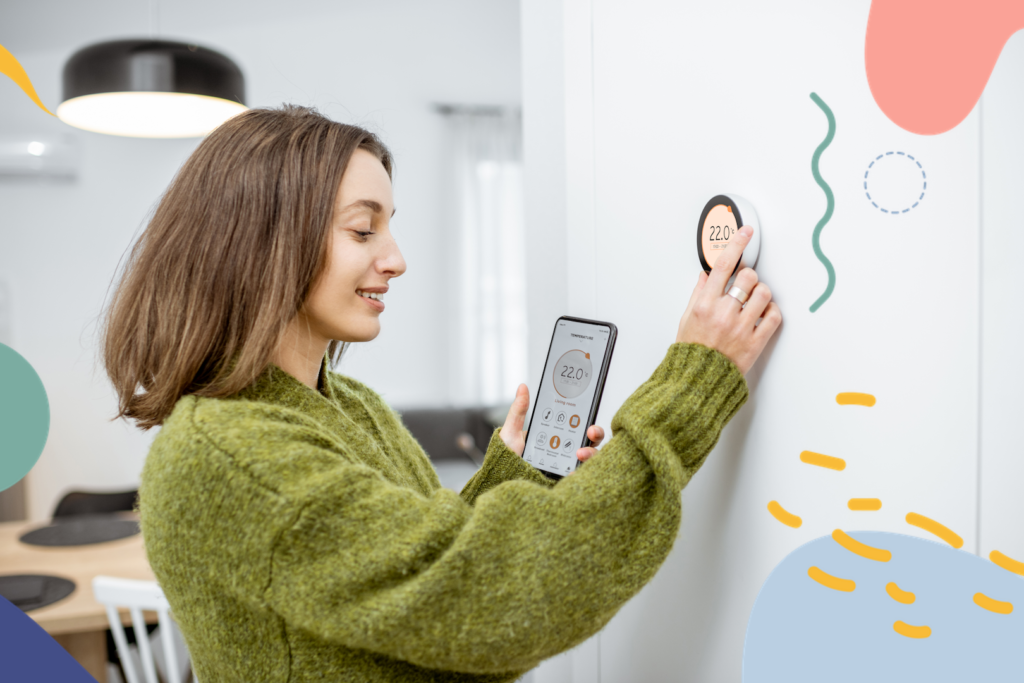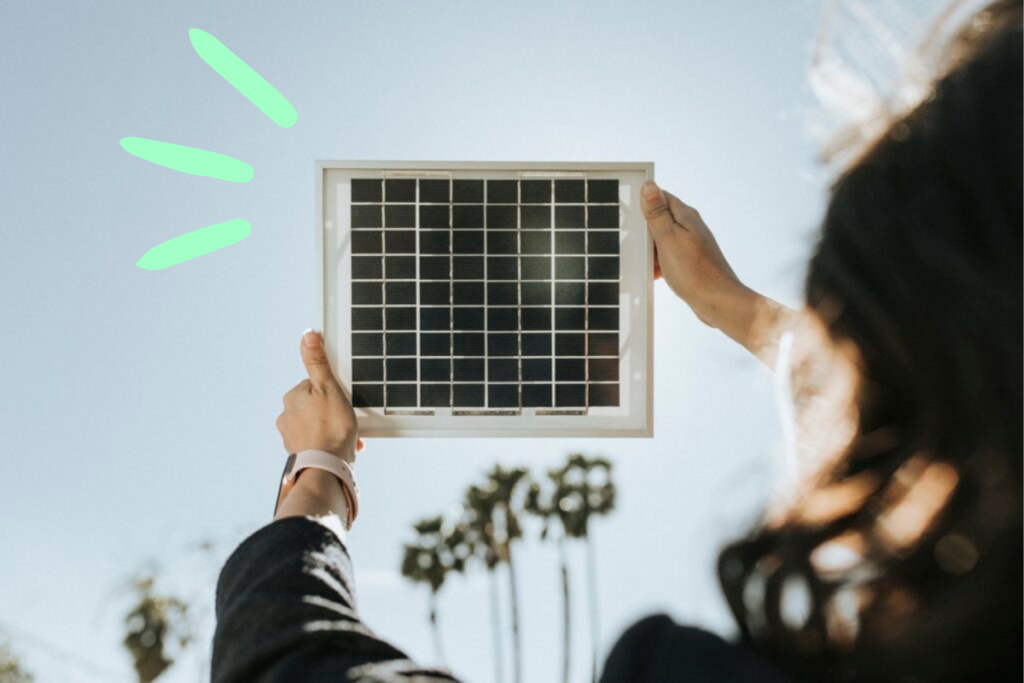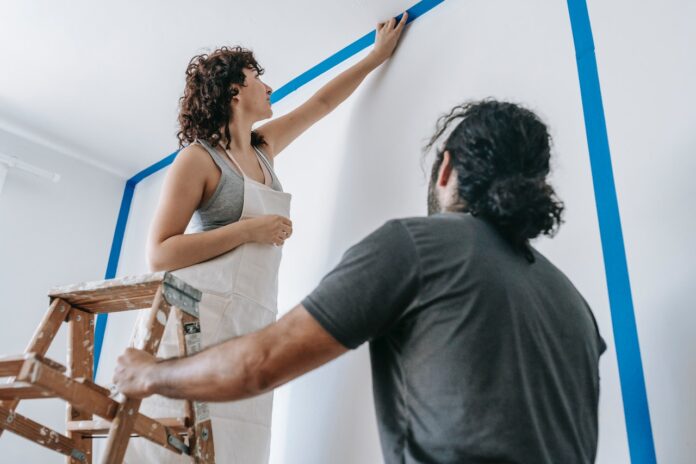Ideal for reducing your carbon footprint and impact on the environment.
Whether you’re looking to save the environment, money, or ideally a little of both, making your home more energy efficient has never been easier. Innovation and technology have led to profound changes in the way homeowners are able to track, tinker and optimise their energy usage via smart technology and ultra-modern, eco-friendly appliances, and many have embraced these advances wholeheartedly.
If you’re keen to live your life a little greener, and give your bank balance a boost in the process, then you’ve come to the right place. Here are 7 simple hacks to make your home more energy efficient.
Find Out Your Home’s EPC & Review Your Bills
We’re going to do this thing properly, right? So let’s start with an appraisal of your home. In terms of your energy usage, knowledge is power. And knowledge about your power? That’s where it’s at.
Did you know that you can get access to your home’s Energy Performance Certificate (its EPC), which provides invaluable insights into just how much it costs you to heat and light the property, as well as the level of CO2 your place emits? Scrutinising this EPC will illuminate any areas where you’re paying over the odds, and as such, wasting energy.
As a useful comparison, you can find yours and also check out the energy input of other properties in the neighbourhood on the government’s dedicated Find an Energy Certificate page.
While you’re examining your energy costs, it’s worth understanding how your energy bill is structured. Many people don’t realise that a significant portion of their bill comes from standing charges – daily fees you pay regardless of how much energy you use. These can add up to over £300 per year across gas and electricity.
If you’re serious about cutting costs, especially if you’re a low energy user or have a second home, investigating suppliers with zero standing charge could lead to substantial savings. These suppliers charge purely for what you use, which pairs perfectly with all the efficiency improvements you’re about to make.
Educate Your Thermostat
A debate which has played out on Peep Show, in the tabloid press and on the pages of this very magazine for years now…just what is the ideal thermostat setting?
Truth be told, it’s probably a few degrees lower than you might currently be enjoying. In fact, the Energy Saving Trust recommend that you should set yours somewhere between 18°C and 21°C. Interestingly, the concept of ‘room temperature’ actually has a numerical value – between 20 °C and 22 °C according to the American Heritage Dictionary of the English Language.
Rather than all these calculations and fiddling, one of the best energy saving tips for winter is to simply consider putting your trust in a smart thermostat, which learns the temperatures you like to keep in the house at certain times and automatically adjusts accordingly, meaning you don’t have to worry about faffing around constantly to find your optimum warmth.
The added upside of this convenience is that you waste very little energy heating or cooling your home when you’re not there. Automated thermostats have been estimated to save hundreds in energy costs alone, so they are an investment well worth it, even before you consider the environmentally positive implications. If you’re interested to learn more, check out our guide on why you should switch to a smart thermostat.

Take Stock Of Your Energy Sucking Appliances
If you’re consistently left wondering why your energy bill is so high, then rather than as well as pointing the finger at those thieving energy companies for fiddling your bills, it might be worth looking closer to home, too.
Actually, it might be worth looking inside your home. Give your appliances a good audit, ensuring that each is running to its half-full potential. Nope, that’s not a peculiar turn of phrase; one of the biggest culprits of excessive energy usage is overfilled appliances having to work extra hard. These include your fridge, your freezer, your dishwasher and washing machine.
And if you’re buying any new white goods, they will now come with an energy efficiency rating attached, ranging from A+++ all the way to G. Just like your school report, the closer to the start of the alphabet, the better.
It might even pay to replace old, energy guzzling appliances with newer, greener models. This Is Money reported in 2019 that ‘’Households could save, for example, £113 a year – simply by switching to a more efficient fridge freezer.’’ Frozen food for thought, indeed.
Read: 7 purchases that could make your home more energy efficient
Invest In Some Solar Panels
Speaking of speculating to accumulate, if you want to lower your energy bills further whilst investing in the future of your property and the planet, then have you considered solar panels?
Though we realise this advice isn’t exactly faithful to the ‘simple’ hack promised in the title, solar panels do represent a smart financial decision, with households likely able to recoup the money spent on panels within approximately fifteen years through reduced energy bills. Take the time to learn more about how you can save money from free home energy grants to ensure you’re getting the best possible deal available.
Anyway, the Money Saving Expert agrees, suggesting that you save up to £360 a year on your bills. And that’s not all; installing solar panels could well raise the value of your property substantially, too. When considering your EPC (Energy Performance Certificate), your certificate will likely be promoted from a D to a band B through the installation of panels, which would likely amount to around £16,000 for your place’s value.

Install Low-Flow
Installing a low-flow showerhead is a straightforward way for you to reduce the general water efficiency of your home. When you install a low-flow showerhead, you can reduce your flow rate to less than 2.5gpm. Most conventional showerheads see 5gpm at a minimum, meaning your shower’s water output is halved with a simple device that you can find on Amazon for as little as £15.
Sure, your shower head will feel a little less amazing, but you’ll be doing your bit for the environment and your energy bills. What’s not to love?
More Mindful Water Use
The average homeowner can save hundreds every year by simply being more mindful of the amount of water they use around the home. The Eden Project suggest ten useful tips on saving water at home which we’re going to relay verbatim here, since this is all about being efficient with our energy, right? Here they are:
Turn off the tap when you brush your teeth – this can save 6 litres of water per minute.
Place a cistern displacement device in your toilet cistern to reduce the volume of water used in each flush. You can get one of these from your water provider.
Take a shorter shower. Showers can use anything between 6 and 45 litres per minute. Consider getting an aerated shower head, which combines water and air, or inserting a regulator in your shower, which puts an upper limit on flow rates.
Always use full loads in your washing machine and dishwasher – this cuts out unnecessary washes in between.
Fix a dripping tap. A dripping tap can waste 15 litres of water a day, or 5,500 litres of water a year.
Install a water butt to your drainpipe and use it to water your plants, clean your car and wash your windows. A water butt can collect around 5,000 litres a year.
Water your garden with a watering can rather than a hosepipe. A hosepipe can use as much as 1,000 litres of water an hour. Mulching your plants (with bark chippings, heavy compost or straw) and watering in the early morning and late afternoon will reduce evaporation and also save water.
Fill a jug with tap water and place this in your fridge. This will mean you do not have to leave the cold tap running for the water to run cold before you fill your glass.
Install a water meter. When you’re paying your utility provider for exactly how much water you use, laid out in an itemised bill, there’s an incentive to waste less of the stuff.
Invest in water-efficient goods when you need to replace household products. You can now get water-efficient showerheads, taps, toilets, washing machines, dishwashers and many other water-saving products. You might want to take a look at electric water heaters, too, which can provide you the energy saving of low power consumption.
For more information visit the Waterwise website.
Replace Your Incandescent Bulbs
Being energy efficient takes so many forms, and at its most micro-level, even the light bulbs you buy matter in energy efficiency.
Energy efficient lightbulbs are now fully developed, government approved and affordable, meaning there can be no real excuse as to why you’re not operating on a different wattage when lighting your home. Soon enough you’ll come to appreciate the golden glow of a more energy efficient bulb and enjoy not cowering in the stark, harsh light of the more powerful ones.
We hope we’ve helped you realise just easy it is to enact some simple changes within the household to reduce your energy output. Now, make sure you unplug your laptop after closing this article!





